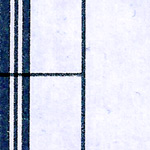 Niżej dwa cytaty z książki Janet Biehl „Rethinking Ecofeminist Politics”, wydanej w roku 1991, a więc nieco historycznej, ale interesującej. Tak, to w ramach poszukiwania takiego feminizmu, którego moja męska immunologia – a chciałbym myśleć, że po prostu ludzka – nie odrzuca. Nie mówię, że tym razem go znalazłem, póki co obserwuję swoje reakcje. Przy okazji polecam tekst „Naprawiając błędy ekofeminizmu” z Łajki. To jedno z niewielu miejsc ze śladem Biehl w polskojęzycznym internecie. I jeszcze coś w ramach poszukiwania koneksji – ten sam cytat, który wybrałem niżej, umieścił w swojej książce „Nonsense on Stilts: How to Tell Science from Bunk” (w rozdziale The Science Wars II: Do We Trust Science Too Little?) również Massimo Pigliucci, którego od dłuższego czasu podczytuję i podsłuchuję. Istotne, że dowiedziałem się o tym już po tym, jak dokonałem swojego wyboru cytatu. Biehl pisała tak:
Niżej dwa cytaty z książki Janet Biehl „Rethinking Ecofeminist Politics”, wydanej w roku 1991, a więc nieco historycznej, ale interesującej. Tak, to w ramach poszukiwania takiego feminizmu, którego moja męska immunologia – a chciałbym myśleć, że po prostu ludzka – nie odrzuca. Nie mówię, że tym razem go znalazłem, póki co obserwuję swoje reakcje. Przy okazji polecam tekst „Naprawiając błędy ekofeminizmu” z Łajki. To jedno z niewielu miejsc ze śladem Biehl w polskojęzycznym internecie. I jeszcze coś w ramach poszukiwania koneksji – ten sam cytat, który wybrałem niżej, umieścił w swojej książce „Nonsense on Stilts: How to Tell Science from Bunk” (w rozdziale The Science Wars II: Do We Trust Science Too Little?) również Massimo Pigliucci, którego od dłuższego czasu podczytuję i podsłuchuję. Istotne, że dowiedziałem się o tym już po tym, jak dokonałem swojego wyboru cytatu. Biehl pisała tak:
The early radical feminism of the late 1960s and early 1970s (…) called for the equality of women in every aspect of social and domestic life. The more radical feminists who initiated that movement recognized that the full equality of women could not be achieved without far-reaching changes in all structures of society. By contrast, ecofeminism’s sweeping but highly confused cosmology introduces magic, goddesses, witchcraft, privileged quasi-biological traits, irrationalities, Neolithic atavisms, and mysticism into a movement that once tried to gain the best benefits of the Enlightenment and the most valuable features of civilization for women, on a par with thinking and humane men. What were once seen by progressive thinkers as the general goals of humanity as a whole, to be attained without any gender restrictions, have been dissolved by ecofeminists into a body of vague parochial notions focused overwhelmingly on women’s allegedly special quasi-biological traits and a mystical relationship that they presumably have with nature — a „nature” conceived as an all-nurturing and domestic Great Mother. This highly disparate body of hazy, poorly formulated notions, metaphors, and irrational analogies invites women to take a step backward to an era whose consciousness was permeated by myths and by mystifications of reality. It does not bode well for women — especially those who regard themselves as more than creatures of their sexuality—to follow in this regressive path.
oraz
As a woman and a feminist, I deeply value my power of rationality and seek to expand the full range of women’s faculties. I do not want to reject the valuable achievements of Western culture on the claim that they have been produced primarily by men. The music of Beethoven is as dear to me as the poetry of Emily Dickinson. We cannot dispense with millennia of that culture’s complex social, philosophical, and political developments — including democracy and reason — because of the many abuses that are intertwined with that culture.
O Biehl i jej problemach z ekofeminizmem napiszę jak już skończę czytać tę książkę, a zanim się tak nie stanie, będę publikował co smaczniejsze cytaty.
